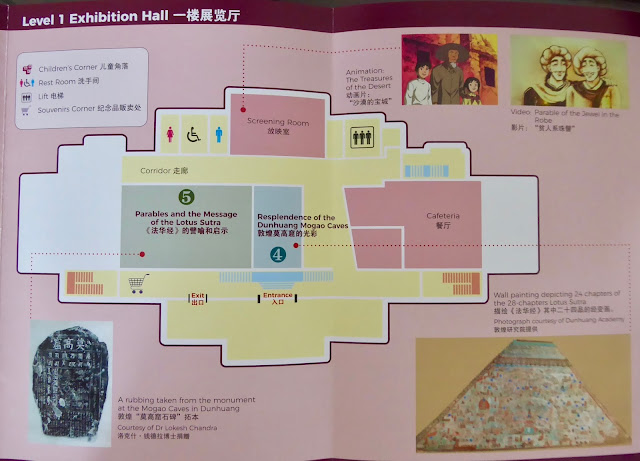In this video, Master Sheng Yen explained the verse, "No ignorance and also no ending of ignorance, until we come to no old age and death; and no ending of old age and death" from the Heart Sutra. 无无明,亦无无明尽,乃至无老死,亦无老死尽.
Craving and grasping foster our attachment, and therefore forms the karmic force that will bring us to our next life in the circle of birth, aging, and death.
Ignorance without beginning is the root cause of samsara and our mental affliction.
Craving and grasping foster our attachment, and therefore forms the karmic force that will bring us to our next life in the circle of birth, aging, and death.
Ignorance without beginning is the root cause of samsara and our mental affliction.
There are 12 links of dependent arising. The 12 links involve 12 stages but the Heart sutra stops at "there is no ignorance" and skips the following volition, sensation, name and then jumps to aging and death.
This reflects our life as continued and incessant existence emanating from ignorance without beginning. The ignorance from life to life brings about volition and consciousness life after life, and therefore there is consciousness going through rebirths one life after another.
After consciousness enters the womb, "name and form" begins and thus another life is started. Name and form mark the start of life. Entering the womb as a foetus. After birth, there is "contact". When the foetus is four or five months old, it can move on its on and make contact. In Chinese custom, a newborn is considered to be one year old which is actually more correct. Since it has been in mother's womb for 40 weeks, it has started its present life. A foetus actually can perform many activities like kicking, and sucking his/her thumb.
Since conception since entering the womb and becoming a foetus, its life has started. The start of this present life. After the start, there is contact. And then birth, after which there are sensation/feeling and craving. And craving actually includes the element of dislike, That is one likes what is desirable or agreeable, while rejecting and refusing what is detestable and undesirable. "Craving" actually has two levels of meaning. One being what we like the other something we don't like. This becomes a stage, a rather long stage.
It starts from birth with feeling, hunger, desiring and pursuing. It doesn't stop until death. This is craving (爱)and the next is grasping(取)。
Grasping actually follows closely on craving. What do we grasp? We grasp what is good, what we like and what we want. But we also grasp what work against our ends. In that case, we reject it or discard it. One is grasping and the other is rejecting or refusing. Craving includes love and hate, like and dislike.
Craving and grasping as two elements and two stages actually last a long period; from birth until death. It's all within the state of mind. When we like something, we want to seize it right away. When we dislike something, we can't wait to get rid of it. We are constantly experiencing this situation.
Craving makes us greedy, greedy without satisfaction or limitation. What we dislike we find detestable and want to throw it away and when we can't, we are full of hatred. When we can't get what we desire, we feel hatred too. Therefore we give rise to various mental afflictions. It's because we crave and grasp that we create various karma in our life. However, its not without its advantages because we crave and grasp, we get to sustain our life.
Haven't you seen small babies? Not long after they're born, they grasp things and stuff them in their mouth. Even as a grown up, we still constantly crave and grasp. But out of courtesy and moral consideration and various factors that restrain us, we can't rampantly go about craving and grasping whatever catches our eye. We can't completely go along with what we desire. But still deep down in our hearts, we hope we can get more and more still. This continues until death. There we create karma and then existence follows on from that. Existence in what way? Existence of causes for the future. The causes for the future will then lead one to the future life. The force that forms the cause for the future will then already be in existence.
With its existence, consciousness will form. And this consciousness will enter the womb for the next life. In the next life, there will be birth, aging and death again. So the existence will lead to the next life, life after life. This is the 12 links of dependent arising throughout three periods of time.
















